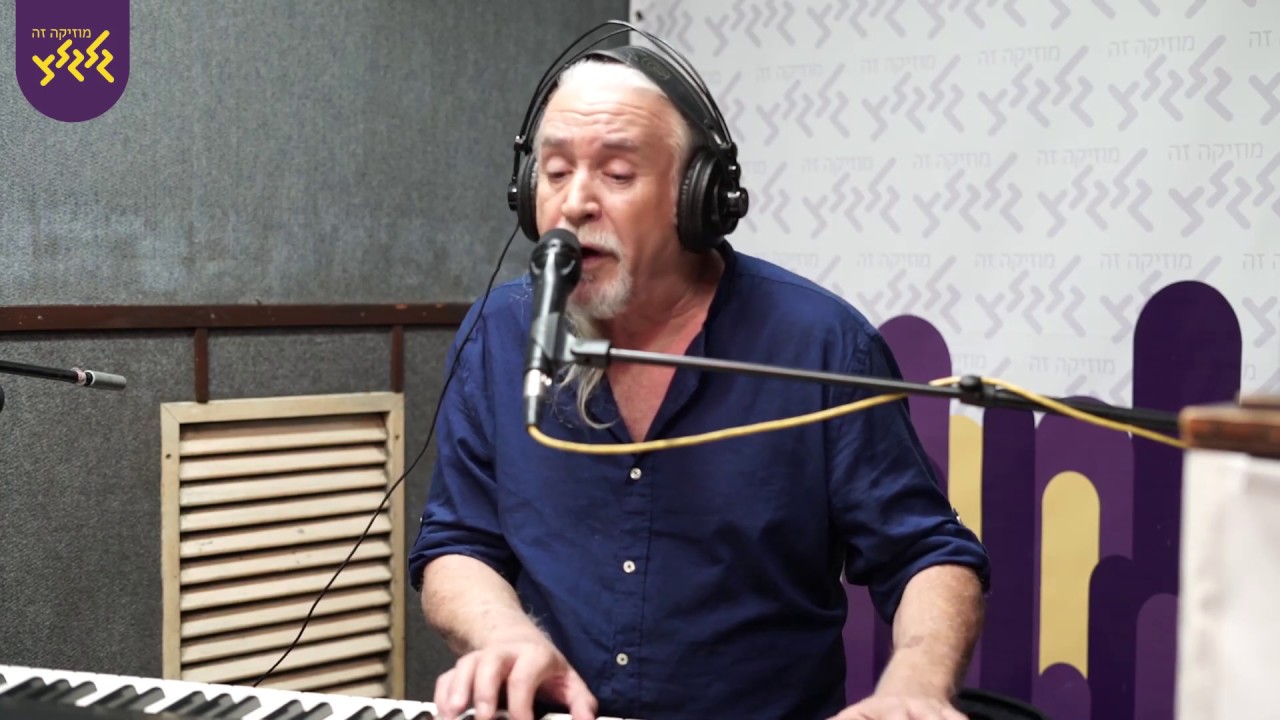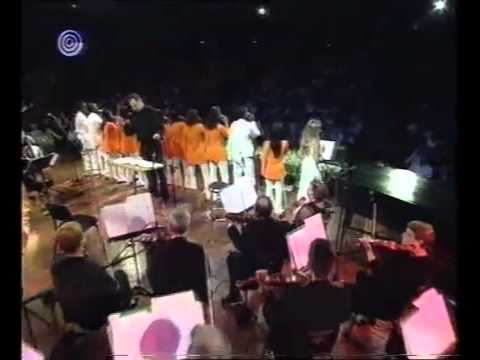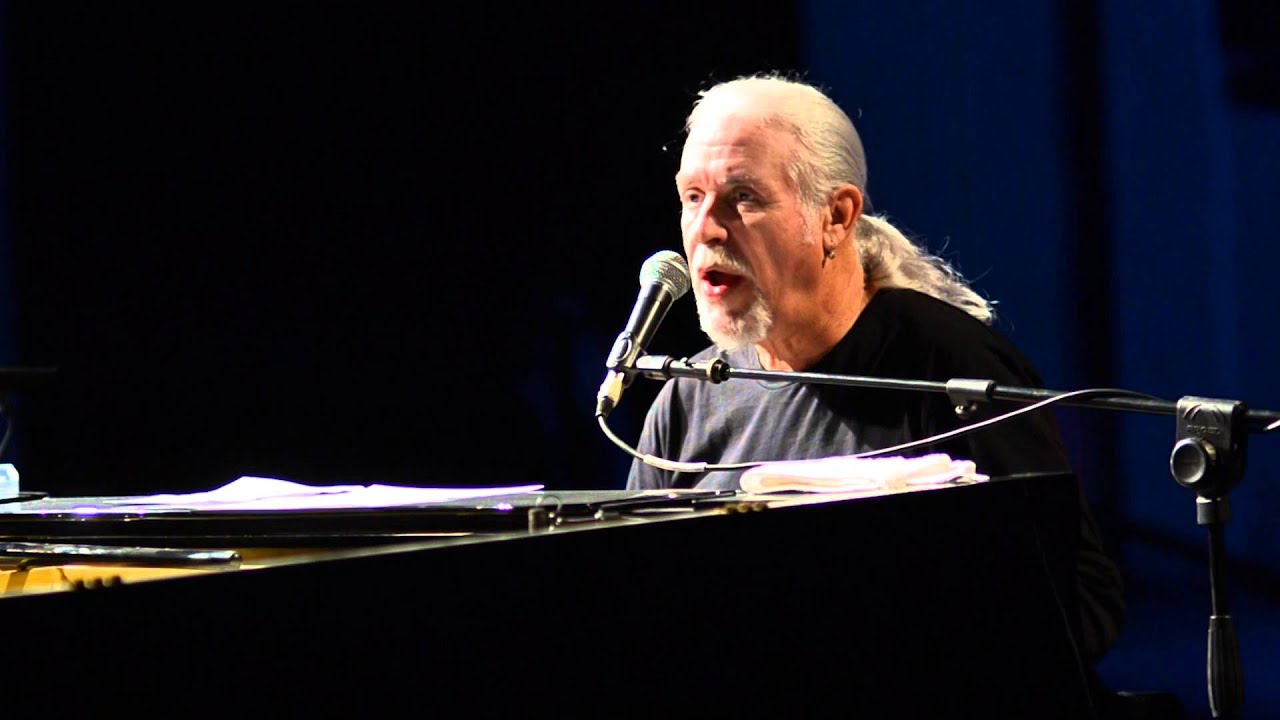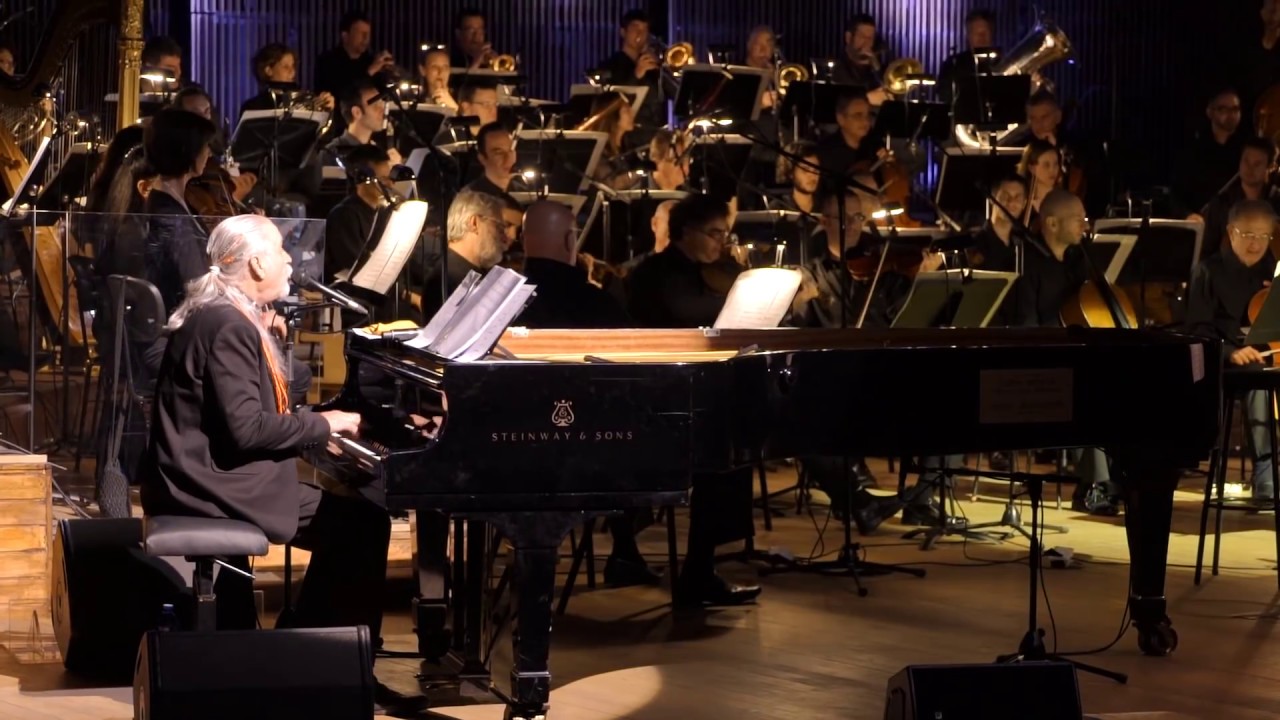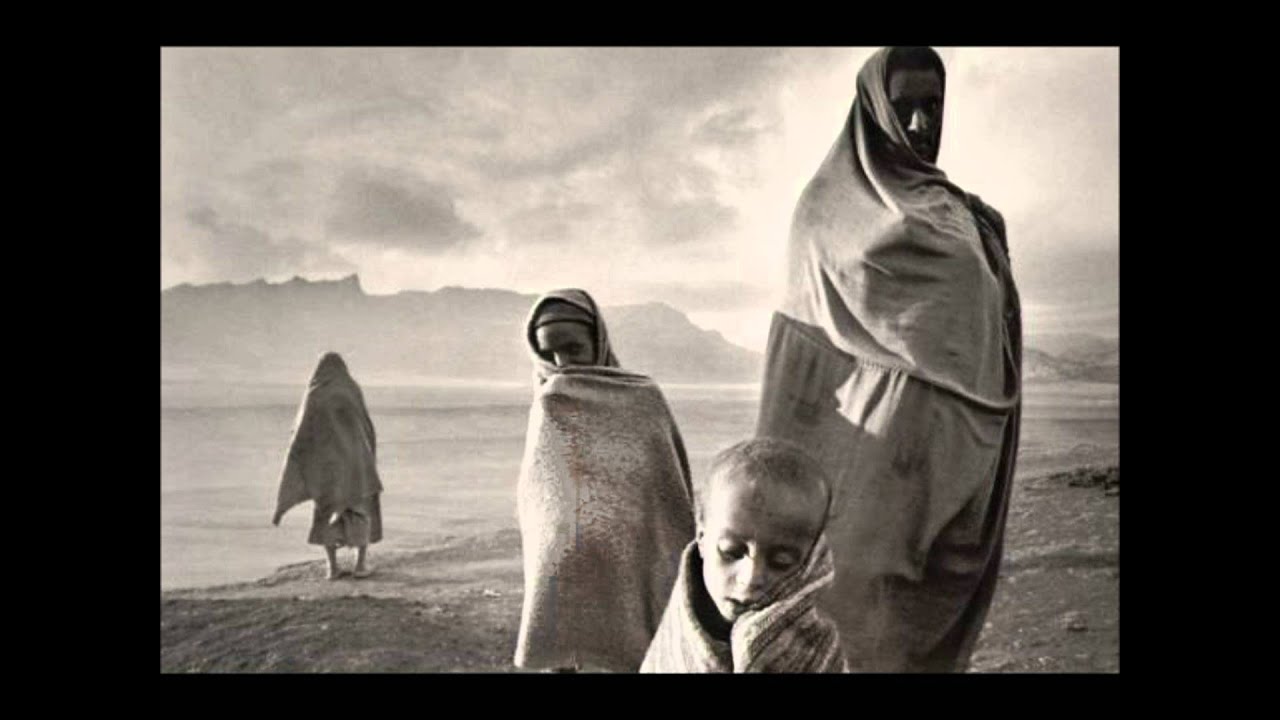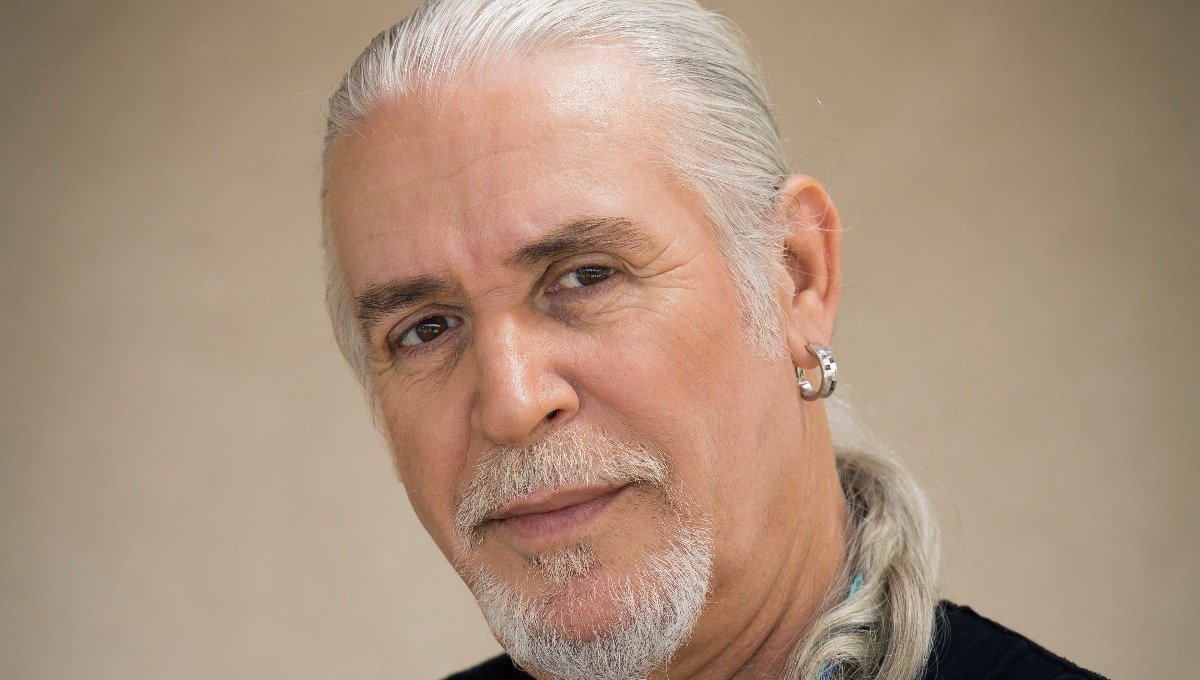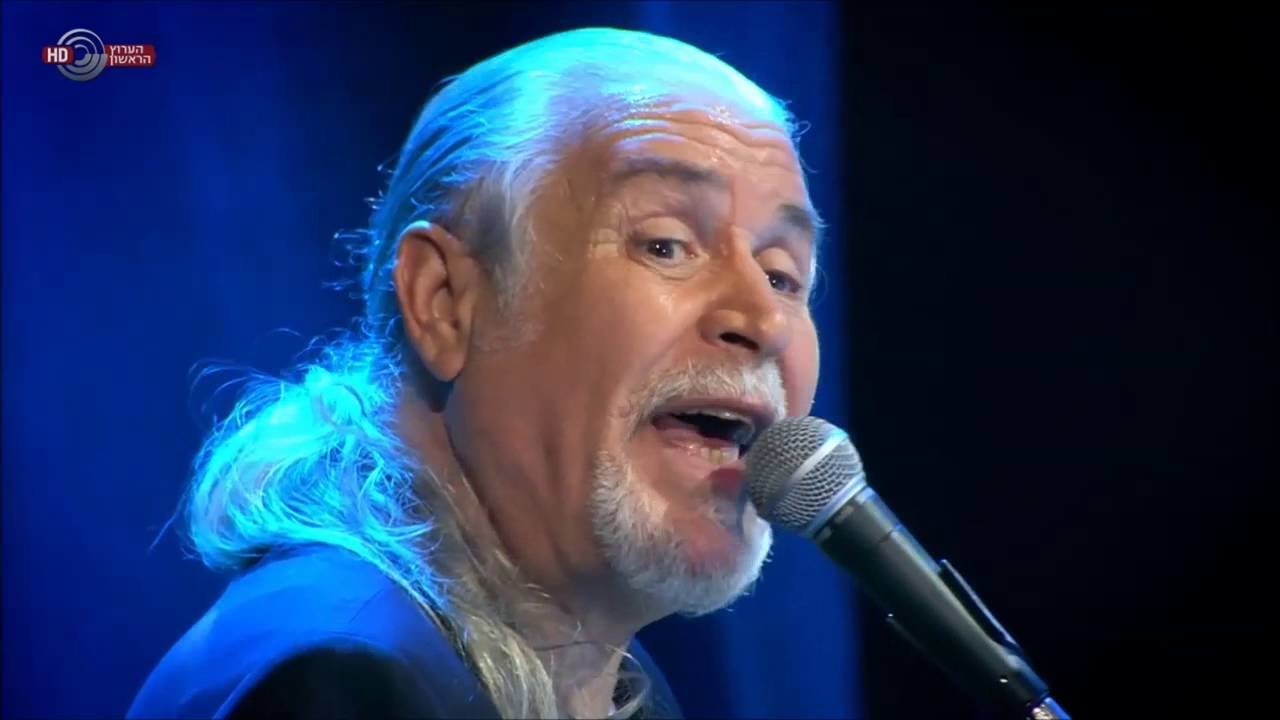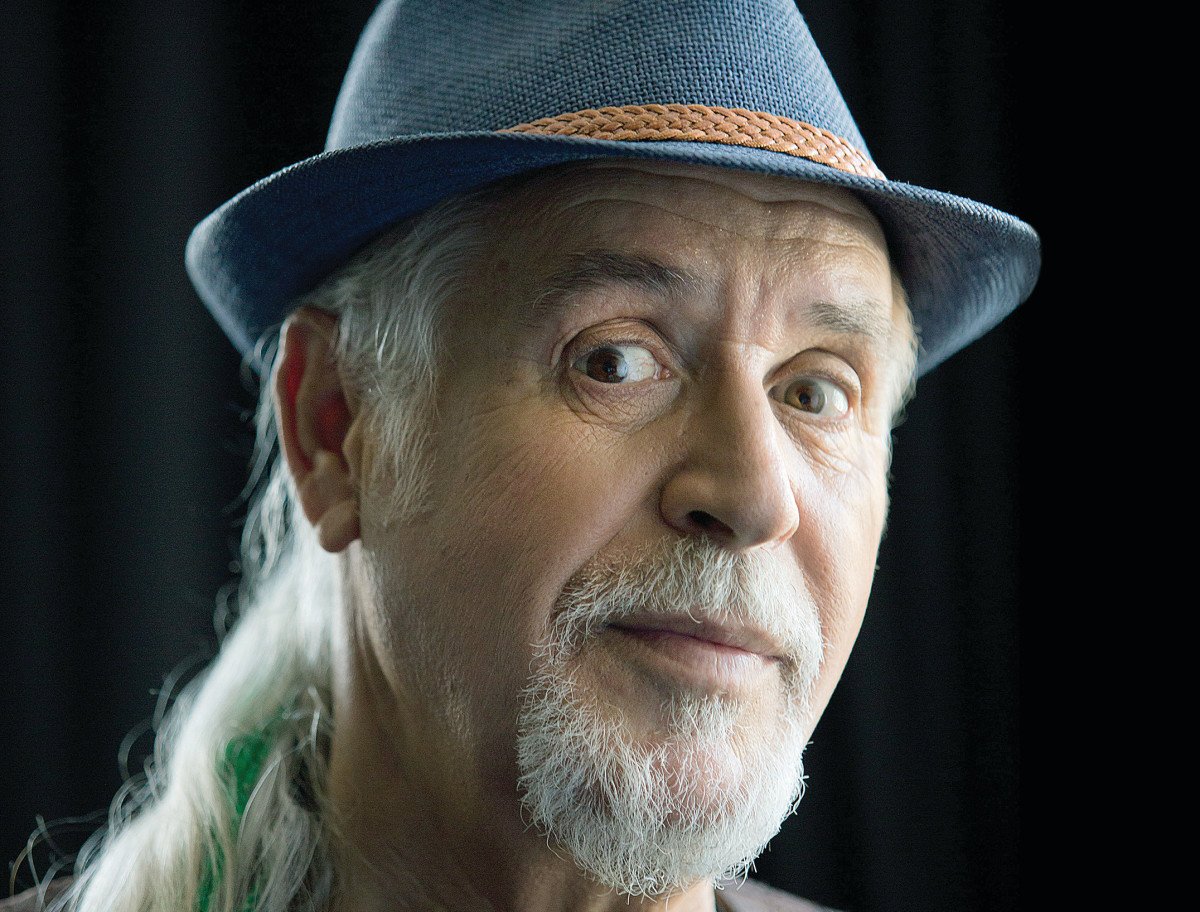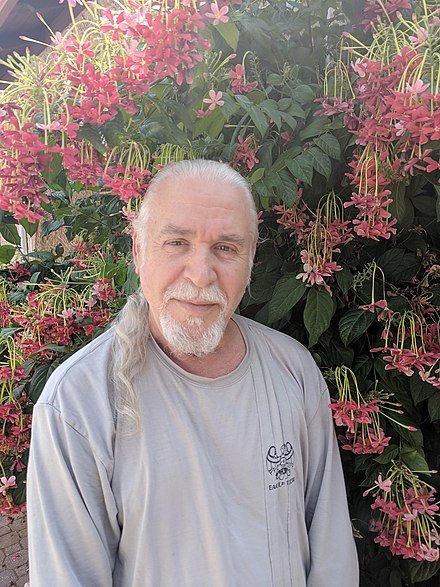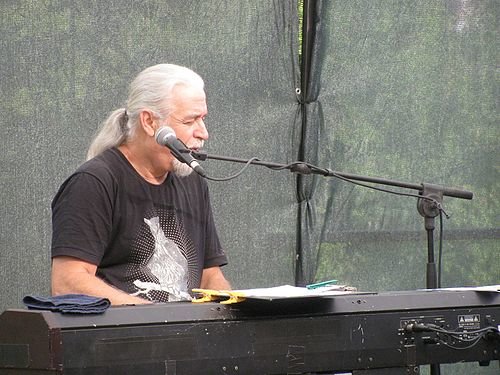מורשת גדולי האומה
בזכותם קיים
beta
Shlomo Gronich - A Musical Odyssey
Shlomo Gronich, born on January 20, 1949, is an Israeli musician, singer, composer, and pianist. His life's journey has been a remarkable one, filled with musical exploration, collaborations, and personal growth.
Early Life and Musical Beginnings
Shlomo Gronich was born in the city of Hadera, Israel, as the middle child in a family of three siblings. His father, Aharon Otto Gronich, was a music teacher and a clarinet player who founded the Maccabi Hadera orchestra. It was in this musical environment that Shlomo's own musical journey began at the age of six when he started learning to play the piano. By the age of seven, he was already performing in public.
At the age of 14, Shlomo Gronich was sent to Kibbutz Yad Hana, where he joined the Kibbutz Artzi Youth Movement, known for fostering creative expression and nurturing young artists. During his time there, he had the opportunity to interact with renowned artists such as Gila Almagor, Yona Atari, and Gali Atari, who were also alumni of the program.
In the years 1968 to 1970, Shlomo Gronich studied at the Tel Aviv Academy of Music under the guidance of the accomplished musician Arye Vardi.
Musical Ventures and Collaborations
In 1969, at the age of 20, Shlomo Gronich married Orna, but the marriage ended in divorce just two years later, in 1971.
In 1970, Gronich was conscripted into the Israel Defense Forces (IDF) and served as a keyboard player in the IDF Entertainment Troupe, as well as a musical arranger for various military bands, including the "Holtzura" program of the Sinai Division. During his military service, he offered his song "Rosa Martifan" to a band he was performing with, but they considered it too unconventional.
It was during this time that he first met Mati Caspi, a fellow musician who would later become his collaborator on the joint performance "Behind the Sounds." Initially, Caspi produced a two-song recording, which included "It Deserves" dedicated to David Ben-Gurion on his 85th birthday and "Tziur," a song composed by Caspi and Gronich's older brother, Ilan.
In 1971, following his appearance on a radio program, Shlomo Gronich was approached by producer Tzvika Kaspi, who was working for the Phonodor record company (later known as Phonokol). This encounter led to the production of Gronich's debut album, "Why Didn't You Tell Me?," which was received with mixed emotions but is now regarded as an important record in Israeli music history. One of its most notable tracks is "Al Na Telech," for which Gronich incorporated Johann Sebastian Bach's Prelude No. 1, with lyrics by poet Tagore.
After the release of his debut album, Shlomo Gronich and Mati Caspi embarked on a musical journey together, performing as "Behind the Sounds." They initially recorded a two-song single produced by Tzvika Kaspi, featuring the songs "It Deserves" and "Tziur." The latter was composed by Caspi and set to lyrics written by Gronich's older brother, Ilan.
In the same year, Gronich composed and arranged songs for Mordechai Arnon's album, "Arba-Asar Octavot," which is considered one of the most revolutionary psychedelic albums in Israeli music history. The album includes the original version of "Al Na Telech," also featured on Gronich's debut album, as well as other tracks like "Shelo Neda Metzarot" and "Haya Li Layla."
In 1973, Shlomo Gronich collaborated with Mati Caspi for the first time on the album and concert series "Behind the Sounds." Notable songs from this collaboration include "Tziur," "Al Na Telech," "Quintah," and "Va'otcha."
During the Yom Kippur War in the same year, Gronich lost his younger brother, Yaron, who was also a talented musician. Yaron served in the Israeli Air Force, and his aircraft, attempting to return to base after being hit, crashed into a building.
Between 1974 and 1975, Shlomo Gronich was part of the musical group "Ktzat Acheret," alongside Shlomo Yidov and Shem Tov Levi. Gronich first met Yidov and Levi on the television program "Lea Goldberg's Songs," where they discovered a shared artistic curiosity. "Ktzat Acheret" released a single album, "Ktzat Acheret," which featured some of Gronich's compositions, including "Shir Hanesi'a" (The Departure Song).
In 1975, after appearing on several albums that did not achieve commercial success and feeling that the Israeli audience did not fully appreciate his work, Shlomo Gronich made the decision to leave Israel. Initially, he moved to Europe and later to New York, where he studied at the Mannes School of Music. Before leaving, he managed to record vocals for the album "Arba-Asar Octavot," released by Yoni Richter and Avner Kenner, which became one of the groundbreaking psychedelic albums in Israeli music history.
Return to Israel and the '80s
In 1980, after a period abroad, Shlomo Gronich returned to Israel and began a solo career alongside collaborations with other artists. In the same year, he released his second solo album, "Concert," featuring songs like "Shir Ahava Tari" and "Al Na Telech." He also composed and arranged the music for Judith Rabb's album "Gluvi Ve'Nolad."
In 1981, Gronich participated in the Eurovision preselection contest and sang "Kaleidoscope" in a duet with Dafna Armoni. He composed and arranged the song, which was based on his wife Nirit's lyrics.
In 1982, he released the album "Tzemar Gefen Matok" with the production assistance of Mati Caspi. Two standout tracks from the album were "Na'iva" and "Shomkum."
In the same year, Shlomo Gronich composed the music for the film "Under the Nose" directed by Jacob Goldwasser.
In 1983, he recorded an album with Shem Tov Levi titled "Family Album." The album's name was a reflection of the fact that at the time, Gronich and Levi were in-laws, as their respective wives were sisters. The album featured the hit song "Shirim Pashutim" (Simple Songs).
It also included a reimagined version of "Yesh Li Simpatiya" (I Have Sympathy), originally performed by Nurit Galron at the Festival of Poetic Songs three years earlier. In 2012, Gronich revisited the 1980s and recreated a video clip that had been filmed at Kikar Hamedina for a special program called "The Stories Behind the Songs" hosted by Nadav Bornstein on Channel 10.
In 1985, Shlomo Gronich participated in the International Children's Festival in Havana, Cuba. His performance was aired on Israeli television.
Later Career and Achievements
Throughout the 1990s and 2000s, Shlomo Gronich continued to be an active and influential figure in Israeli music. He released several albums, composed music for films and theater productions, and collaborated with various artists. Some of his notable works during this period include:
1. In 1995, Gronich released the album "Spirit of the East," which featured a fusion of Middle Eastern and Western musical elements. This album received critical acclaim for its innovative approach to music.
2. In 2000, he composed the music for the Israeli film "Late Marriage," which gained international recognition.
3. Gronich also ventured into educational work, conducting music workshops and programs for children and youth.
4. In 2007, he was awarded the Israel Prize for Hebrew songwriting.
5. Shlomo Gronich continued to perform both in Israel and internationally, sharing his music with audiences around the world.
Shlomo Gronich's career has been marked by his versatility as a musician and composer, his ability to blend various musical genres, and his dedication to promoting Israeli music and culture. His contributions to Israeli music have left a lasting impact, and he remains a respected and beloved figure in the country's musical landscape.
- שלמה גרוניךhe.wikipedia.org

